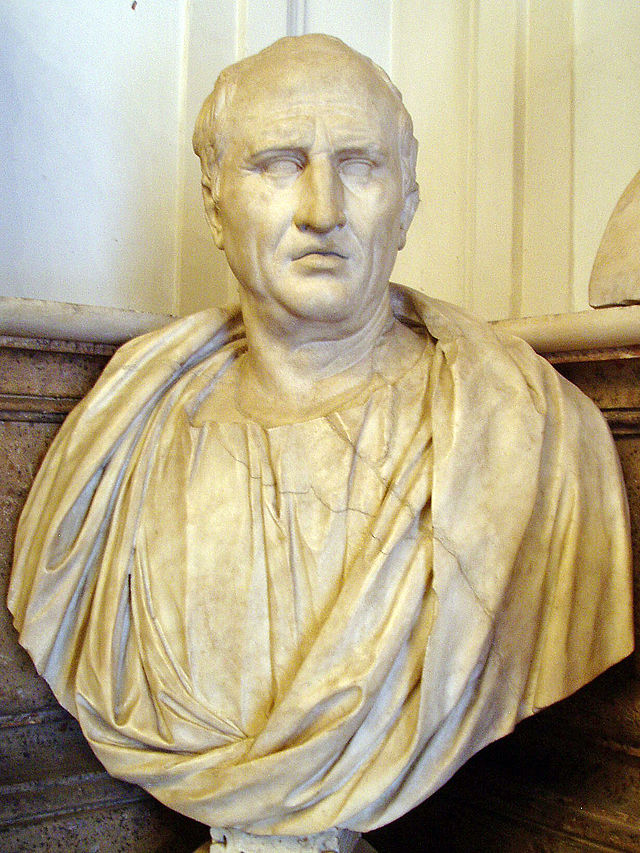He taught us how to think (Voltaire)
My knowledge of the Ancient History is rather mediocre, but I am a political and historical junkie with special fondness for Classics. Until recently, most of my knowledge about The Roman Republic and the Empire had come from films, TV Series, Shakespeare plays and documentaries. Therefore, I have decided to deepen my knowledge about this subject so I had started from Commentarii de Bello Gallico, The Age of Augustus, Caesar: Life of a Colossus, The Meditations by Marcus Aurelius and finally I have arrived to the Cicero: The Life and Times of Rome's Greatest Politician.
Marcus Tullius Cicero is remembered by most of the people for his works in the fields of philosophy, rhetoric, law and political science. Regrettably, most of the people, except for a few scholars, pay little or no attention to his accomplishment in the Roman politics of his time.
Cicero was born at the time when Roman political system was constantly shaken by various political crises and licentious «saviors» were ready to conquer power at any costs, including murder. When Cicero was twenty-four Sulla launched another novice in political struggle – proscription. Nevertheless, comparing with Caesar, whose political «coming of age» were effectively at the same time, Cicero has not lost his faith in the Republic…
Anthony Everitt does an outstanding job in exploiting Roman political processes. He portrays Senate driven by self-ambition, fear of each other, struggle between optimates (nobel) and populares (people), internal division in every faction (hardcore and moderate). Roman politics were driven by personalities, rather than parties (you could find the similar pattern in the United States Senate) and the main words for Senate business were gridlock and lack of bipartisanship (you could also find it in the United States Senate). Therefore, in many aspects, judging from Everett words, if you use medical terminology, end of the Republic was not a murder, it was an assisted suicide.
Secondly, Everitt portrays a compelling image of Marcus Tullius Cicero. Cicero was a man prone to fear, flip-flop and misjudgment. Nevertheless, Cicero also showed some political courage during his Consulship when he suppressed the Second Catilinarian Conspiracy and it was his finest political hour. After that, he had entered a long period of personal political stagnation until death of his beloved daughter Tullia, which gave him some inner steel. After that, he once again had become dominant figure but he made a crucial miscalculation about young Gaius Octavius…
One area where people constantly misunderstood Cicero is his political beliefs. Marcus Tullius was a firm believer in Republic and member of the optimates faction, so he was a conservative, not a reformer. However, he also was a pragmatic conservative, who understood the need of some change and bipartisanship, which had put him on odds with die-hard optimates like Cato (Cato reminds of Ron Paul). Cicero views were close to the Schumpeterian theory of Democracy (Generally speaking schumpeterians view democracy as the mechanism for competition between leaders and the participatory role for individuals is usually severely limited). It is not surprising that The Constitution of the United States, which was framed by Cicero admirers, was greatly admired by Joseph Schumpeter as an ideal illustration of his policy.
In closing, you could say that Cicero ideas were never realized over the span of his lifetime, but his torch has been passed to the other generations (plagiarizing JFK first inaugural) and his dream lives on (plagiarizing convention address by another Kennedy, this time Ted).
Finally, Anthony Everitt has written great book for all kinds of readers (scholars and general readers) which helps you to draw light on Cicero life, views and accomplishments and political system of the Roman Republic. Nevertheless, after reading this book switch to Cicero’s original writings (letters, speeches, philosophical works, etc.)

No comments:
Post a Comment